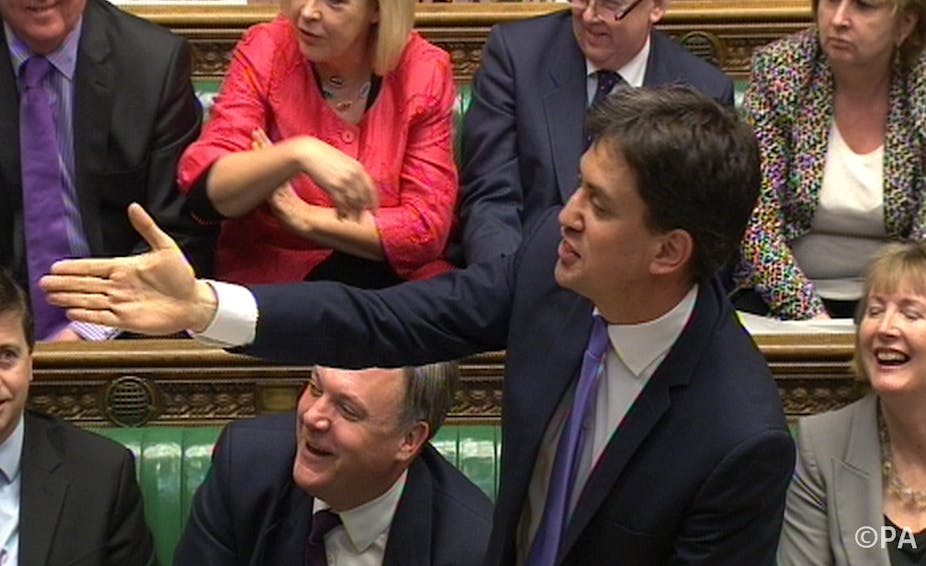Ed Miliband’s response to George Osborne’s Budget statement got off to a good start with a quip about the chancellor’s announcement, flagged in this morning’s press, that a new £1 coin would be introduced to replace the current model which has proved too easy to forge.
The size of the £1 coin, he said, didn’t matter when people were £1,600 worse off.
This is a theme that has become very familiar from the opposition front bench in recent times: working families have not seen any benefits from the government’s policies. In fact, according to Labour, they have lost out by £1,600 since the 2010 election.
Miliband suffered several interruptions which required the intervention of the deputy speaker who reminded unruly types on the Treasury benches they had not interrupted their senior colleague.
The opposition leader hammered away at a favourite old refrain which was that the coalition government, stacked as it is with representatives of the Eton-Oxford brigade, is more interested in looking after millionaires rather than ordinary people.
He rather theatrically demanded the prime minister rule out making a further cut in the top tax rate to 40p should the Conservatives be returned, but David Cameron did not respond.
This is undoubtedly a message that Labour will want to push hard next year in the election campaign. The leader of the opposition argued that the government was “out of touch” and had created an “Eton mess” with its policies, referring to recent remarks by Baroness Warsi, a senior minister. It was good political knockabout which got a rousing reception from his own benches – but the real meat of the Labour attack will come when Ed Balls speaks tomorrow with the benefit of 24 hours of frantic scrutinising of the budget documents by his backroom staff.
Labour strategists would like to look to the future rather than revisit the past (which is understandable). The want to emphasise that they are offering an alternative model of the economy to the coalition government, which in their view has failed to rebalance the economy. In particular they want to crack down on what they see as the excesses of big business. The proposed energy price freeze has gone down well with hard-pressed voters.
However, voters still need to be convinced that Labour can actually deliver on its model. If it starts to attract too much criticism from business about what are perceived to be “anti-business” proposals, that may affect assessments of its competence. Labour would argue that it is trying to boost small and medium-sized businesses, but that point may be too subtle for most voters.
There are plenty of criticisms that can be made of the coalition’s economic stewardship. As Miliband pointed out, the deficit is going to take four years longer to disappear than was originally forecast. Exports have been sluggish and the revival of the economy has been too dependent on consumer spending which itself is fragile. The productivity record has been very poor, and while there is much disagreement about why this is the case, and how much “spare capacity” there is in the economy, it means that austerity will have to last longer than would otherwise be the case.
Above all, voters perceive inflation to be higher than the statistics show. Real wages are only just starting to recover – and not at all in the public sector. There are new threats in the offing to food prices and energy prices. The “cost of living crisis” message is therefore one that has traction with voters.
It remains to be seen whether Ed Balls can get that message across effectively when he rises to deliver his formal reply.

